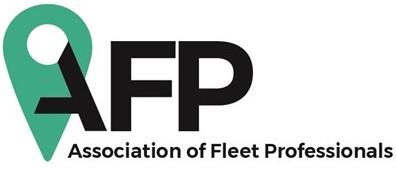Drive down your fuel spend
 Back
BackRising fuel expenditure will be leaving many fleet managers hotter under the collar than even this scorching summer has achieved.
External factors have introduced significant inflation to fuel prices, threatening to undermine fleet budgets, and with little sign of a reprieve on the horizon.
Crude oil prices have risen from $62 per barrel at the start of the year to touch $80 in May, while the value of sterling has fallen against the US dollar (the currency in which oil is traded) from an exchange rate of £1 to $1.42 in January to $1.31 today. Both trends have increased key components in the cost of petrol and diesel, and the evidence is clear to see at the pumps. According to the latest AA fuel price report, unleaded prices soared to 128.8p/litre in June, from 121.7 p/litre in January, while diesel prices raced ahead in the first half of the year to 131.7p/litre from 124.4p/litre in January.
More worrying still are the mounting rumours that the Government is considering the removal of its freeze on fuel duty, which has stood for the last eight years. Currently, every litre sold at the pumps incurs duty of 57.95p per litre plus 20% VAT, but as the Government seeks income to pay for its pledged increase in NHS funding, fuel duty has been identified as a potential source of extra revenue.
With no reprieve to escalating fuel prices in sight, the strategies and techniques to control and minimise fuel spend will be a key focus at Fleet Live.
“Most businesses budget for fuel based on last year’s spend plus 2% or 3%, so as soon as the pump prices rise, a lot of fleet managers will be over their fuel budgets, which means they will be under pressure from their finance teams,” said Paul Hollick, chair of the Institute of Car Fleet Management and managing director of TMC, who will be speaking at Fleet Live.
He added that initial responses to fuel overspend frequently focus on reducing the number of miles travelled, but argued that better, smarter policies can bring expenditure back into line without impacting on a company’s business.
Overall savings of 15.2% are typically achieved by TMC clients, said Hollick, through a combination of encouraging drivers to refuel at cheaper filling stations; more accurate reimbursement of business miles; and combatting fraud.
Eliminating refuelling at motorway services, for example, can save an average of 10p/litre, while reliable recording of business miles can significantly reduce reimbursement payments.
“We have seen one prospect that had a private mileage reimbursement rate of only 6%. So they were effectively saying that 94% of all fuel used was for business trips. If they are company cars that is not possible. The norm you would expect is 50:50,” said Hollick.
“And there will be people claiming 45ppm when they have a car allowance and are only entitled to 11 or 12ppm. All of these things are really prevalent in a lot of businesses.”
Cases of mis-use and fraud can start innocently, but develop into costly, endemic abuse through issues such as ghosting, where an employee claims for a trip even though a meeting was cancelled; two employees claiming for the same trip when they’ve travelled in the same car; or simply rounding up mileage claims.
“Employees often don’t think they are doing anything wrong, but actually it can have serious consequences for fleets,” said Hollick.
Only robust systems for monitoring fuel spend, which have the capacity to mine and analyse the data and highlight inconsistencies, will enable fleet managers to take genuine control of expenditure, he added.
At Fleet Live, Paul Hollick will discuss the tools and tactics to address these problems and the incentives that companies are using to encourage drivers to purchase fuel as if it were their own money they were spending. Download the agenda here.
FLASH: Register NOW for Fleet Live at www.fleet-live.co.uk
Plan your Fleet Live visit
When? 9-10 October, 2018
Where? NEC, Birmingham
Entry? Free! Secure your complimentary pass here
Details? Find out more here

